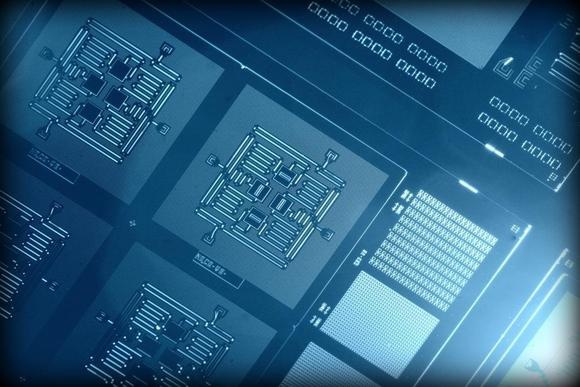IBM has made a couple of prototype processors capable of 17 qubits, in a move that should significantly advance the computing power of its Q Commercial Systems.
IBM Q was launched in March this year and is an industry-first initiative to build commercially available universal quantum computing systems for business and science applications.
It should be remembered that for a while now IBM has envisioned medium-sized quantum processors of 50-100 qubits within the next decade.
 Prototype Processor
Prototype Processor
But the news that it has working prototype processors capable of 17 qubits makes it the most powerful quantum processor created to date by IBM.
The first people to get their hands on the upgraded processor will be developers, researchers, and programmers, who will be able to explore quantum computing using a real quantum processor at no cost via the IBM Cloud.
To date users have run more than 300,000 quantum experiments on the IBM Cloud.
The second is a new prototype of a commercial processor, which will be the core for the first IBM Q early-access commercial systems.
According to IBM, these two new processors include a 16 qubit processor that will allow for more complex experimentation than the previously available 5 qubit processor. The first IBM commercial processor however offers 17 qubits and “been engineered to be at least twice as powerful as what is available today to the public on the IBM Cloud and it will be the basis for the first IBM Q early-access commercial systems”.
“The significant engineering improvements announced today will allow IBM to scale future processors to include 50 or more qubits, and demonstrate computational capabilities beyond today’s classical computing systems,” said Arvind Krishna, senior VP and director of IBM Research and Hybrid Cloud.
“These powerful upgrades to our quantum systems, delivered via the IBM Cloud, allow us to imagine new applications and new frontiers for discovery that are virtually unattainable using classical computers alone,” he said.
IBM said that it ‘plans to continue to push the technology aggressively and aims to significantly increase the Quantum Volume of future systems by improving all aspects of the processors, including incorporating 50 or more qubits.’
Chip Race
The new IBM chip chip comes after quantum computing specialists D-Wave Systems revealed in January their latest quantum processor, the 2000Q, available for around a mere $15 million (around £12m).
Despite debuting some three decades ago, quantum computing techniques are still very much in their infancy and subject to much research and development.
Rather than replace traditional PC or enterprise grade servers anytime soon, the quantum computing could be used in the future to tackle problems and tasks that have enormous amounts of data that would take even supercomputers based on traditional computing techniques a long time to process.
Quiz: How much do you know about the cloud?





